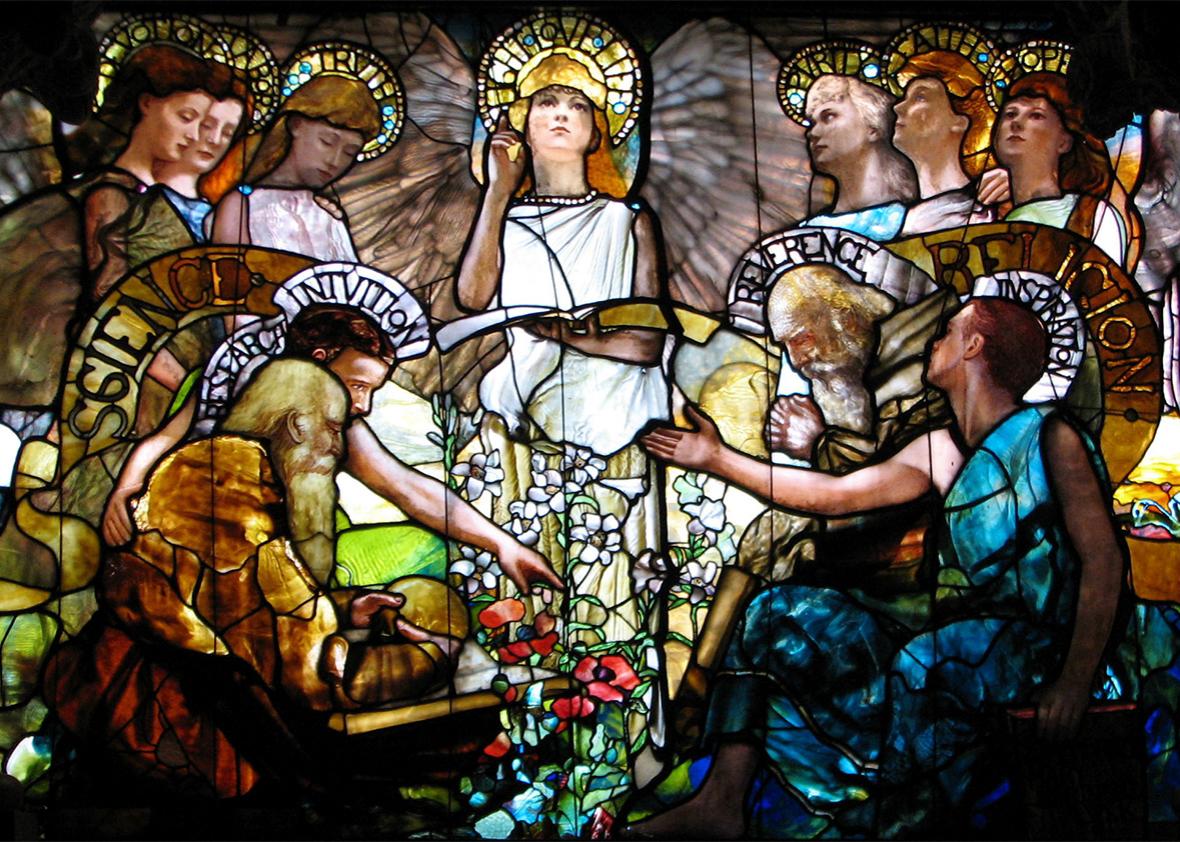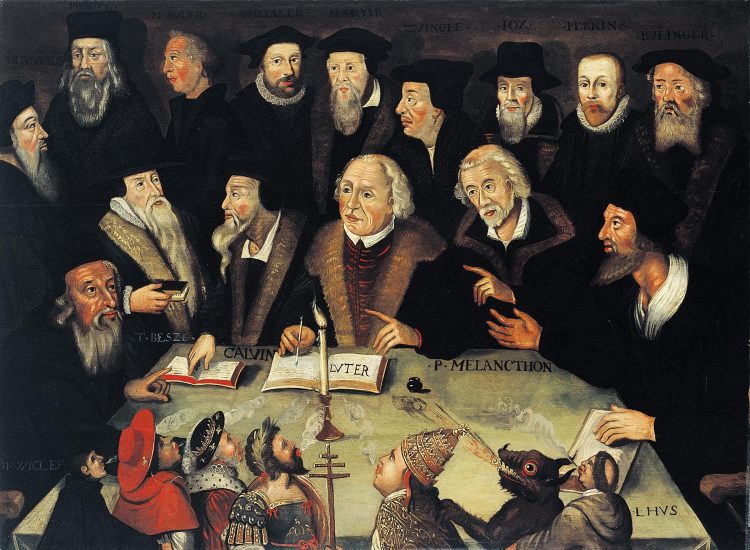In a world where science and religion often seem like two opposing forces constantly at odds, one must wonder: can’t we all just get along? As it turns out, the answer may not be as simple as a resounding “Kumbaya.” Join us on a wild ride through the tangled web of theories and beliefs as we attempt to bridge the gap between these two unlikely bedfellows. Grab your lab coat and your rosary beads, folks – it’s going to be a bumpy (and possibly enlightening) ride!
The Historical Relationship between Science and Religion
Science and religion have had a rollercoaster of a relationship throughout history. From friends to foes and back again, these two have certainly had their fair share of drama.
One of the most famous clashes between science and religion occurred during the time of Galileo. The Catholic Church was not too pleased with his heliocentric views, claiming they went against scripture. I mean, who doesn’t love a good old-fashioned religious scandal?
But let’s not forget about all the times science and religion have teamed up to create some pretty awesome stuff. I mean, where do you think those intricate cathedral ceilings came from? Yup, you guessed it – a little bit of science mixed with a whole lot of faith.
At the end of the day, science and religion may not always see eye to eye, but hey, who wants a boring relationship anyway? The ups and downs just make things more exciting. So here’s to the historical love-hate relationship between science and religion – may it continue to keep us on our toes for years to come!

Key Differences and Similarities between Science and Religion
Science and religion may seem like polar opposites, but they actually have more in common than you might think. Here are some key differences and similarities between the two:
- Evidence: In science, everything is based on empirical evidence and experimentation. Meanwhile, religion relies on faith and belief in the unseen. So the next time you’re debating whether the Earth is round or flat, just remember that one side has actual proof.
- Heroes: Scientists have their heroes like Albert Einstein and Marie Curie, while religion has its saints and prophets. Both sides have their own version of superstars, except science doesn’t have an annual feast day dedicated to Neil deGrasse Tyson (yet).
Despite their differences, science and religion both aim to answer life’s big questions. Whether you believe in the Big Bang or a higher power, we all just want to know why we’re here and what happens after we kick the bucket. So grab a telescope or a prayer book and start seeking those answers!

Debunking Myths and Misconceptions about the Conflict between Science and Religion
Let’s clear the air and debunk some common myths and misconceptions about the supposed conflict between science and religion!
First off, it’s a total myth that all scientists are atheists and all religious people are anti-science. In reality, many brilliant scientists have deep faith and many religious individuals fully embrace scientific discoveries. It’s not a battle of belief systems, folks!
Another misconception is that religion is just a bunch of superstitions and fairy tales, while science is all about cold, hard facts. Well, actually, both fields involve a fair amount of mystery and wonder. Science is constantly evolving and discovering new things, just like how religious beliefs provide comfort and guidance in times of uncertainty.
Let’s not forget the myth that science has all the answers and religion is just for those who can’t handle ambiguity. The truth is, both science and religion tackle big questions about the universe and our place in it. The more we embrace both perspectives, the more holistic our understanding becomes.

Finding Common Ground: How Science and Religion Can Coexist
Let’s face it, the age-old debate between science and religion has been raging on for centuries. But what if I told you that there is a way for these two seemingly opposing forces to coexist peacefully? Yes, you heard me right! Here are some ways we can find common ground between science and religion:
- Recognize that both are ways of understanding the world: Science seeks to explain the physical world through empirical evidence, while religion offers spiritual and moral guidance. Both have their strengths and limitations, so why not appreciate them for what they are?
- Embrace the unknown: Science acknowledges that there are still many mysteries left to uncover in the universe, while religion grapples with the mysteries of faith. Instead of butting heads over what we don’t know, why not come together to explore the possibilities?
- Respect each other’s beliefs: Just because someone believes in evolution doesn’t mean they can’t also find solace in prayer. And just because someone follows a religious tradition doesn’t mean they can’t appreciate the wonder of the cosmos. Let’s respect each other’s beliefs and see where that takes us!
So, there you have it! Science and religion don’t have to be mortal enemies after all. By finding common ground and embracing the differences, we can create a harmonious coexistence between the two. Who knows, maybe we’ll even uncover some new truths along the way!

Exploring the Role of Faith and Belief in Scientific Discovery
Let’s face it, science can sometimes feel like a wild roller coaster ride. But where does faith and belief fit into all of this? Turns out, they play a pretty interesting role in the world of scientific discovery.
When scientists hit a roadblock or face a seemingly unsolvable problem, it’s often their faith in the scientific method and belief in their own abilities that keep them pushing forward. Think of it as a little pep talk from the universe, telling them, “You got this!”
In the world of scientific discovery, faith and belief are like the trusty sidekicks to reason and logic. They provide that extra little boost of confidence, helping scientists take risks, think outside the box, and ultimately uncover groundbreaking discoveries.
So the next time you’re reading about a mind-blowing scientific breakthrough, don’t forget to tip your hat to faith and belief. After all, they’re the unsung heroes of the scientific world, quietly cheering scientists on from the sidelines and helping them reach for the stars.
Ethical Implications of Integrating Science and Religion
When it comes to integrating science and religion, there are certainly some ethical considerations to take into account. The clash between these two seemingly opposing viewpoints can lead to some sticky situations. Here are some ethical implications to ponder:
One major concern is the potential for conflicting beliefs to create tension and division among individuals and communities. As scientists and religious leaders come together, disagreements are bound to arise. This clash of ideas can lead to hurt feelings, damaged relationships, and even all-out brawls in the name of science vs. religion.
Another ethical consideration is the danger of cherry-picking evidence to support preconceived beliefs. Scientists may be tempted to fudge their data to align with religious teachings, while religious leaders may twist scripture to fit scientific discoveries. This kind of intellectual dishonesty can have far-reaching consequences, undermining the credibility of both fields.
Ultimately, finding a balance between science and religion is like trying to mix oil and water. It’s a tricky business that requires careful navigation and respect for differing viewpoints. But hey, if we can figure out how to integrate peanut butter and jelly into a sandwich, maybe there’s hope for science and religion after all. Who knows, we might just stumble upon the secret to world peace in the process!
Promoting Dialogue and Understanding in the Intersection of Science and Religion
As we navigate the complex and often contentious intersection of science and religion, it is important to promote dialogue and understanding among believers and skeptics alike. By fostering open communication and respectful discussions, we can bridge the gap between these two seemingly opposing worldviews.
One way to promote dialogue is to approach conversations with a sense of curiosity and a willingness to learn from one another. Rather than dismissing someone else’s beliefs outright, take the time to listen and ask questions. Who knows, you might just learn something new and broaden your own perspective in the process!
Another effective way to foster understanding is to acknowledge that science and religion are not mutually exclusive. In fact, many scientists find inspiration in their faith and many religious individuals appreciate the wonders of the natural world as revealed through scientific inquiry. Embracing this duality can help us appreciate the diversity of human thought and experience.
So let’s continue to promote dialogue and understanding in the intersection of science and religion. Let’s strive to build bridges instead of walls, and to seek common ground in our quest for knowledge and truth. Together, we can create a more harmonious and enlightened world for all.
FAQs
Are scientists and religious people mortal enemies?
Not quite! While they may have disagreements at times, many scientists and religious individuals actually coexist peacefully. In fact, some people even manage to incorporate both science and religion into their belief systems.
Can you be a scientist and still believe in a higher power?
Absolutely! Many scientists identify as religious and see no conflict between their scientific work and their spiritual beliefs. In fact, some scientists argue that understanding the complexities of the universe only serves to enhance their appreciation for a higher power.
How can science and religion work together?
Through open-mindedness and respect! By recognizing that both science and religion have their own strengths and limitations, individuals can find common ground and even use insights from both fields to deepen their understanding of the world.
Are there any famous examples of scientists who were also religious?
Yes, definitely! One of the most famous examples is Sir Isaac Newton, who made groundbreaking contributions to physics and mathematics while also expressing deeply held religious beliefs. Other examples include Francis Collins, a renowned geneticist and devout Christian, and Georges Lemaître, the physicist and Catholic priest who proposed the Big Bang theory.
How can we encourage dialogue between science and religion?
By fostering open and respectful conversations! Encouraging individuals from both camps to listen to each other’s perspectives and find common ground can help bridge the gap between science and religion. We can all learn from each other’s insights and experiences to create a more harmonious relationship between the two.
—
Thanks for joining us on this wild ride!
We hope you enjoyed our exploration into the world of science and religion. Remember, just because you’re a scientist doesn’t mean you can’t have faith, and just because you’re religious doesn’t mean you can’t appreciate the wonders of the natural world. Keep bridging that gap, and who knows what amazing discoveries you might make along the way! Until next time, stay curious and keep questioning everything!






